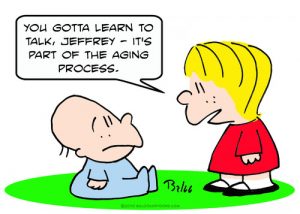Speech Therapy Treatment For Kids
Improve your kid’s speech & language problem from the #1 speech specialist. Here at HearingSol, we will provide you the best treatment for various speech disorders like Misarticulation, Stammering/cluttering, Delayed speech, and language development, Voice therapy /disorder, Dysphagia, etc. Schedule your visit today, Call at our toll-free number +91-9327901950.
REQUEST A CALL BACK
Some children have difficulty speaking certain words or sounds due to many conditions such as autism, hearing loss, development delays. On the other hand, some kids may not understand language properly but some who do, are not able to communicate. Most of the time children have trouble in other areas of communication including facial expressions, hand gestures and stuttering or stammering. Speech therapist adopts many ways to improve speech therapy for children.
If you need any assistance or have a question about Speech Therapy for kids, you can consult our HearingSol experts with your problem, feel free to call us on +91-9327901950. We are always here to help you.
 According to the National Institute on Deafness and Other Communication Disorders(NIDCD), about 1 in 12 children of age between 3 to 12 has a disorder associated with speech, language, voice or swallowing. These disorders can be present at the time of birth or acquired later in life.
According to the National Institute on Deafness and Other Communication Disorders(NIDCD), about 1 in 12 children of age between 3 to 12 has a disorder associated with speech, language, voice or swallowing. These disorders can be present at the time of birth or acquired later in life.
The National health interview survey (NHIS) reveals the following data-
- Among 7.7 percent of kids with swallowing or communication difficulty, speech disorder(5 %) is the most common.
- Followed by language disorder(3.3%), swallowing disorder(0.9%) and voice disorder(1.4%).
- Around one third (34%) young children between ages 3 to 10 have many speech, language, swallowing and voice disorders.
- Almost one fourth (25.4%) teenagers of age between 11 to 17 have more than one of these disorders.
The good news is, the kids who have speech, language, and other disorders can consult speech therapist or speech-language pathologist(SLP).
Before consulting a speech therapist parents often have many questions in their mind including –
- Why does my child need to see a speech therapist?
- How your child’s speech and language develop?
- How can I improve my child speech?
- What does a speech therapist do for children?
Why Do Children Need Speech Therapy?
Children need to see a speech therapist if they have speech or language difficulties including-
- Difficulty in being understood by people
- Developing constant frustration
- Having a rough voice which is very hard to hear
- Constant stammering or Stuttering
- Difficulty in feeding or Swallowing
- Autism
- Cognitive delays (thinking, intellectual) or other kinds of developmental delays
- Chronic hoarseness
- Traumatic brain injury
- Birth defects such as cleft palate or cleft lip
- Respiratory difficulties (breathing disorders)
- Motor planning problems
With small children, it is sometimes difficult to judge. As we know every child is different and develops at their own rate. Parents should mainly focus on whether their child speech is constantly improving or not? As most of the kids understand what other people say by the age of three.
However, in case your 3-year-old not taking but understands or is taking very little, as a parent you should immediately take some action. You need to rule out first hearing problems in your child then consult a speech-language pathologist. Below is the rough guide you can follow to have an idea about your child’s speech and language skills.
How Your Child’s Speech & Language Develop?
The first three years of life, once the brain is developing and maturing, is that the most intensive amount for deep speech and language skills. These skills develop best in an exceeding world that’s made with sounds, sights, and consistent exposure to the speech and language of others.
The first stage of development within the method of youngsters learning to use language is that the Pre-linguistic stage. Babies use this stage to find out the way to communicate with others.
During the primary stage of life, babies chop-chop find out how to speak with their carers, so by the age of twelve months, most babies perceive what’s being aforesaid to them and are beginning to communicate their needs by informing or by showing their carer objects.
The development of a child’s speech and language is given below according to age:
18 months old
- Starts saying “yes” or “no”.
- Try to understand the familiar objects name such as “ball”, “bed”, “cat”.
- Reply to simple commands such as “sit”, “come”.
- Answer easy questions ” what’s this”.
Two years old
- Enjoys and feel happy listening to poems and stories.
- Starts pointing to different body parts.
- Point to objects in the book, if you say “show me the kitty cat”, he will point towards the cat.
- Use a large number of consonants.
- Begin using the two-word combination such as “Bye-bye”, “daddy gone”.
- Try to sing simply and easy nursery rhymes.
Three years old
- Can take part in short conversations.
- Easily use three words combination sentences.
- Also ask questions”why”, “what”.
- Can use basic and simple grammar.
- Make effort in making the correct production of sounds made by the letters b, w, m, n, h, g, p, d.
Four years old
- Ask a bunch of questions.
- Answers questions like ” how”, “who”, “how many”.
- Can tell stories.
- Uses adult-like grammar.
- Talks in whole sentences.
Five years old
- Make use of language to talk about future and past events.
- Try to make an effort in reading properly or make fewer mistakes.
- Takes less time in thinking what to say.
- Involve in detailed conversations.
- Answers ‘when’ and ‘why’ questions.
In case you think your child needs to consult the speech-language pathologist, then if he/she is in preschool, talk to his/her teacher.
There is a probability that our child’s school teacher will suggest you an early intervention program that will offer a free screening or there is a chance that his doctor will refer you to a private pediatric speech therapist.
It is very important for the parents to involve themselves at the right time. A correct evaluation and treatment by a certified speech pathologist help your kid in improving its speech and language problem.
What Does A Speech Therapist Do For Your Children?
 Speech-language pathologists(SLPs) or speech therapist are educated professionals who study human communication, development, and disorders. They have at least a master’s degree and state licensure/certification in the field.
Speech-language pathologists(SLPs) or speech therapist are educated professionals who study human communication, development, and disorders. They have at least a master’s degree and state licensure/certification in the field.
A speech therapist helps children of all the ages in improving their speech, oral motor abilities, and skills to understand and express verbal and non-verbal language.
These professionals deal with kids one on one in very small groups. They also work in the classroom to give different types of therapies involved with a specific disorder.
Different Types of Speech Therapy For Children
Articulation
Articulation therapy or sound production therapy is given to kids who have trouble saying certain sounds or words properly. For example, one might sound like “pun” or may sound like “they”. However, if your kid articulation problem somehow remains the same then your kid intelligence will not be the same as other kids.
Misarticulation
Most of the kids have a problem in speech quality which often leads to substitution, omission, and distortion. Misarticulation Therapy helps young kids in using their speech organ correctly that in turn help them in speaking the correct word.
Expressive language skills
Language is symbolic, symbols can be words either written or spoken. Children often use gestural symbols like saying bye-bye or saying hello with a gesture of their hand. A speech therapist helps kids in learning new words and also teach them how to put those words together in building in new phrases.
Speech fluency or stuttering
Stammering or stuttering is a communication disorder that affects your kid fluency. Your kid initially has difficulties like repetitions of a certain word or prolong usage of some words. A speech therapist will give cluttering therapy to your child for his irregular speaking rate. Most of the kid’s stammer until the age of 10 or 13 therefore, an SLP suggest stammering therapy which in turn decreases his anxiety and increase his confidence.
Resonance or voice therapy
If your child has difficulty with his pitch, quality and volume of the voice which often distract listeners. In resonance disorder, maybe sometime your child might feel pain while speaking a certain word. A Speech-language pathologist will suggest phonation therapy for your child’s normal speech.
Oral-motor/feeding and swallowing therapy
A speech therapist is also trained in pediatric feeding or swallowing issues. He will also help your kid with functional disorders like tongue thrust. The SLP will use different types of oral exercises such as facial massage, various lip, tongue and jaw exercises. These exercises will help in strengthening your kid’s muscles of mouth for drinking, eating, and swallowing.
The Speech therapist also introduces different types of food textures and temperature in order to increase your child’s oral awareness at the time of eating and swallowing.
The therapist not only assess and provide treatment for language, articulation, and cognitive skills but also provide swallowing and feeding therapy as mentioned above. It is common to find children who have both feeding challenges as well as trouble with speech.
We all consider special children for speech therapy and find unusual for other kids to have speech and feeding difficulties. Both eating and speech demand the fine motor side of moving jaw, tongue and lips in a coordinated pattern which becomes difficult for some children.
The SLP for articulation problems uses popsicle sticks, whistles, fingers, straws and other material and tools which help in gaining the child’s control over the muscles of the tongue, mouth, and throat. Also to strengthen the muscles used in eating and speech the SLP uses blow toys or crazy straws. Using a musical toothbrush, blowing bubbles that are fun to use and in a way helps your child to tolerate different sensations inside their mouths.
Treating The Nonverbal Child
There are various types of speech and language delays due to which children are unable to speak or use other kinds of communication methods. Therefore, it is very important to have early intervention and preschool SLPs teach kids and also their parents how images and sign language with the help of sign language apps remove their hesitation while communicating with other people.
All the school going children can also use iPads or computers which help them to communicate through a voice synthesizer or text. According to the author of Apps for Autism, an example of touch screen technology, iPad helps children in competing with other kids in their class by using the super-cool devices. Moreover, the speech therapist considers assistive devices and visual supports for engagement and motivation purpose.
How Long The Treatment Or Therapy Last?
Some treatment or speech therapy for children will show progress in a week or a month. But a few therapies might take more than a month. It mainly depends on your child’s progress, how well your child is adapting to the changes.
In terms of research, ASHA (American Speech-Language and Hearing Association) defined certain terms such as intensity as the quantity of time your child spent in the single treatment session. And frequency as the total number of treatment sessions over a set period of time and also last but not the least duration as the length of time a child received treatment whether two or six months.
According to the study, it is found out that the results of speech therapy are better when the period of duration is over eight weeks. There is a greater probability that if your child needs speech therapy then he/she might be having a phonological or articulation processing disorder.
Therefore, the typical time period to correct a speech difference is approximately 15-20 hours with the typical frequency required for articulation treatment is nearly two times a week for around 30-minute session.
In case the speech disorder is between mild to moderate than the duration of the total treatment involving child attending treatment with parents practicing homework between sessions will be around four to five months.
The actual time period of speech therapy depends on how many sound errors are being addressed in the treatment plan. More the error, the longer will be the treatment.
On the other hand, language disorders which have to do with cognition, receptive/ expressive language skills and also the pragmatic language skills might take more time for treatment. It mainly depends on the number of goals which are identified by an evaluation prior to treatment.
In relation to the treatment, it is extremely important for the parents to take equal participation in their speech therapy sessions. Parents should spend time with your child and help him practice more and more while playing or ask him to help you with your work.
Sometimes motivation can be a roadblock in speech therapy for children. Therefore, different types of speech games, flash cards, hand puppets or toys are used for the constant encouragement of your children.
Specialist believes that children make faster progress if their parents utilize strategies in order to target growth in language skills. A pediatric therapist needs to spend time each therapy session reviewing different goals addressed and also provide insight and training for the parents and families which helps in improving the progress rate on targeted goals.
Finding Speech & Language Therapy Services
It is very important to have a speech therapist who has a proper master degree in the field and have the required experience working with children with a specific disorder. You can find an SLP by asking your child’s teacher or doctor as SLPs are available in schools to examine and provide treatment.
Parents often consider private speech therapy sessions or opt for the social skills training group. The ASHA website provides information about the age of children at which they develop language skills. This information proves to be a great help for parents who suspect whether their child requires speech therapy or not.
The whole process of overcoming a speech and language disorder requires time plus the effort of both the child and parents. Therefore, it is essential to maintain patience and understanding with your child. For any further information, you can visit HearingSol or call this toll free no. +91-9327901950.
